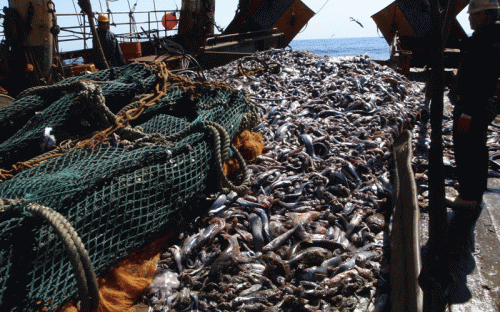Slaves of the Ocean
Since 1994, Indonesian boat crews have worked on South Korean factory trawlers in New Zealand waters- cheap labour catching New Zealand companies' fish quota. These Indonesians have suffered brutal human rights abuses - verbal, physical, sexual - on a daily basis. They also are forced to work long hours, often 20-hour days with only 3 hours sleep.
In June 2011, 32 Indonesian crew walked off the Oyang 75 in Christchurch. After only five months on board the boat, they would no longer suffer the harsh treatment by their Korean officers.
BAFTA nominee filmmaker Guye Henderson had exclusive access, filming their stories of abuse and extreme working hours (2 days with no sleep was common) and in constant fear for their wives
and families being threatened by agents back in In onesia.
Borrowing up to US$2000 to be able to sign on with an Indonesian manning agent to geta job, and then signing onerous two-year contracts, as weil as pledging collateral such as family land to guarantee their labour, they faced financial ruin back in Indonesia - ali this for a paltry wage of just US$200 a month.
This action encouraged other lndonesian crew on Korean factory trawlers to speak out about the coldhearted abuses meted out to them every day, in New Zealand and overseas- the Indian Ocean, Sea of Japan, Bering Sea and South Atlantic Ocean.
Guye Henderson's film exposes the shocking reality that Indonesian crews have no official protection or rights against such inhumane treatment, whether in New Zealand or other fishing waters, and their treatment as modern day slaves is an international human rights disgrace.
This flm will only be showed in private for the jury. No projection for the public.
BAFTA and Royal Television Society nominee Guye Henderson has worked in the television industry as an editor for 40 years, in New Zealand, Australia and London.
Over 14 years in London, he made documentaries for the major British channels- BBC, Channel4, ITV and Discovery Europe, and American channels PBS, CBS, MSNBC, and Discovery.
Guye was nominated for a BAFTA in 1997 and, in 1998, Royal Television Society editing awards. He returned to New Zealand in 2005 and started making television and corporate documentaries.
Guye became interested in the New Zealand fishing industry when he met a Kiwi fisher at a BBQ
and was told about the impact foreign fishing vessels were having on the smaller Kiwi inshore fleet. This led to him making 'The Great New Zealand Fishing Scandai' (see YouTube) which was
broadcast on The Documentary Channel in 2009, gaining their largest audience ever.
In 2010/11 he made 'The Priee of Fish' for NZTV3, also attracting a large audience, and helped force the New Zealand government to hold a Ministerial Inquiry into the chartering of foreign factory trawlers by New Zealand companies. It was while making this documentary that the Oyang 75 crew walked off their vesse!, and Guye lived in their hostel with them and began fil ming 'Slaves of the Ocean'.
Eventually, crew from other Korean vessels heard about the Oyang 75 action, and courageously agreed to tell their story, despite the great risk ofbeing sent home and suffering financial ruin if discovered. Over the next two years, Guye filmed crewmen in New Zealand and Indonesia with his co-producer Dr Nurani Kartikasari.
Guye wants his film to bring global attention to the Korean officers' constant brutality to stop this viciousness for ali Indonesian crew and to ensure their basic human rights.
"Watching these men recount graphically their cruel experiences has far more impact than any written article, and no longer can government officiais ignore their responsibility, and the public say they don't know," says Guye.
Others Movies
|
Matchmaker Nediljko Babic, also known as „Gangster“, helps a Bulgarian single mother find a new |





